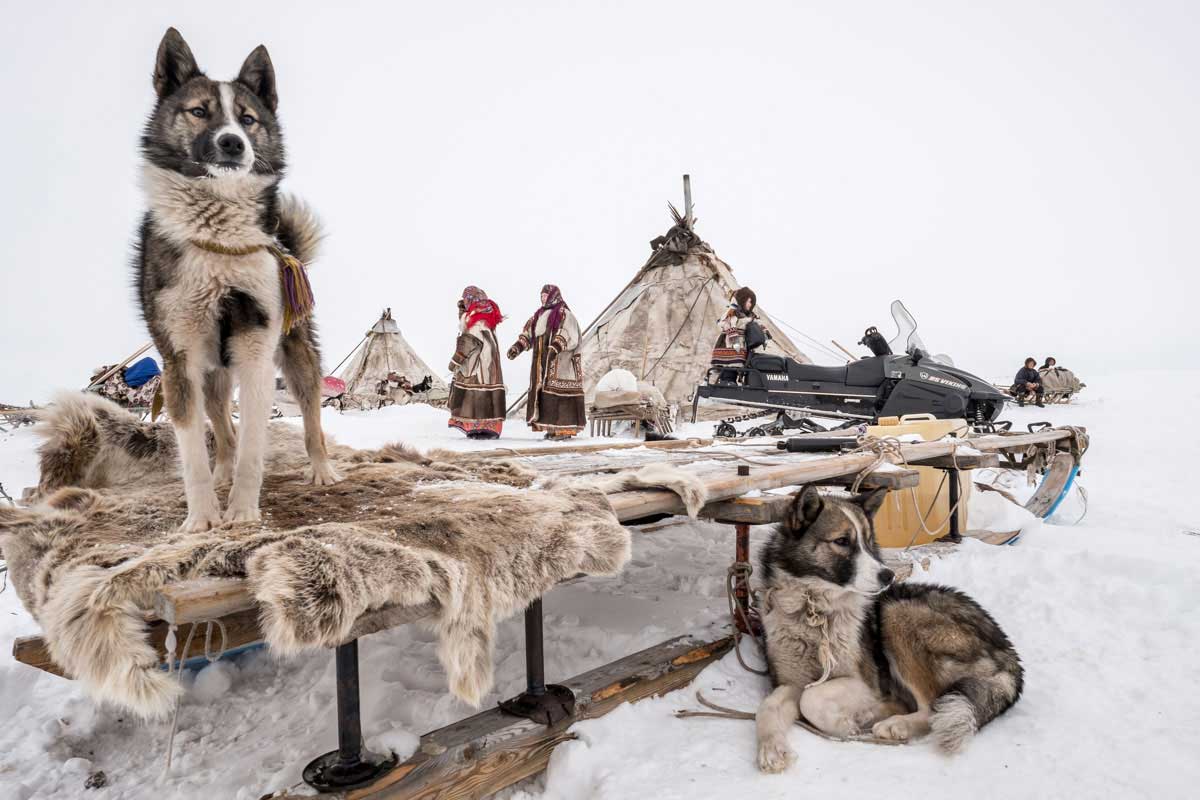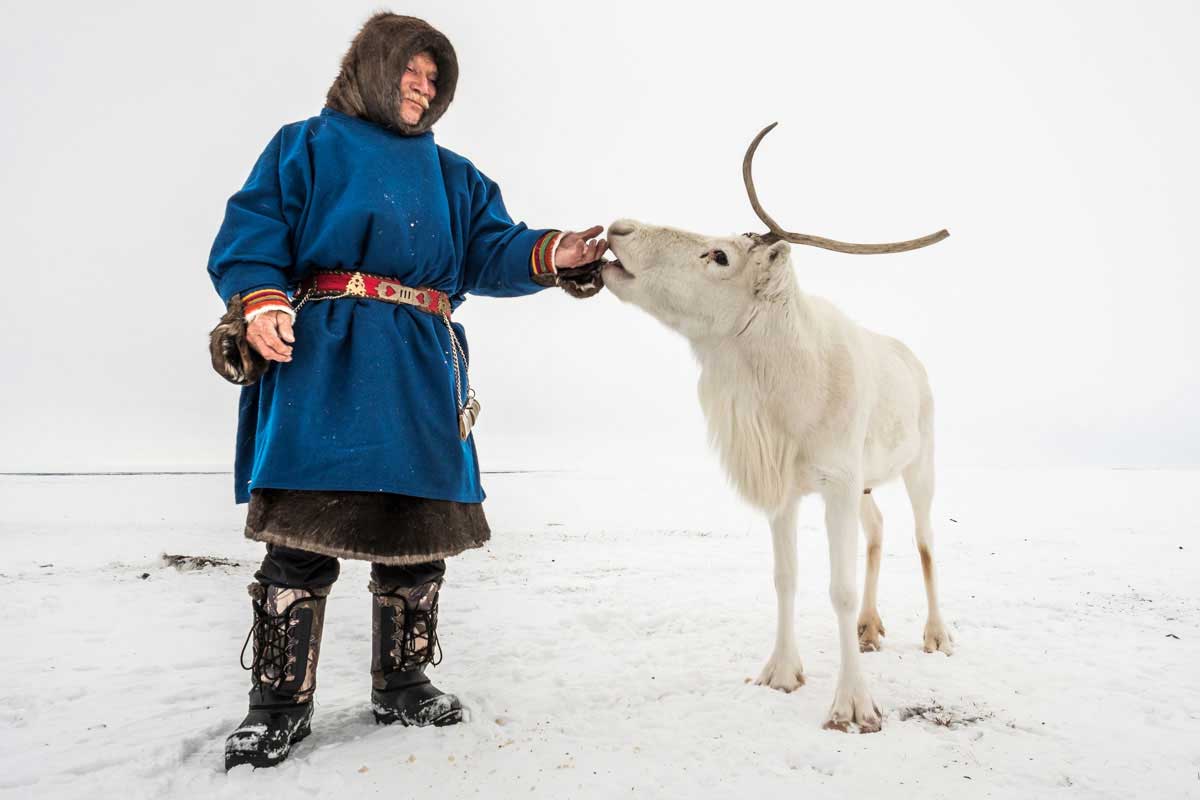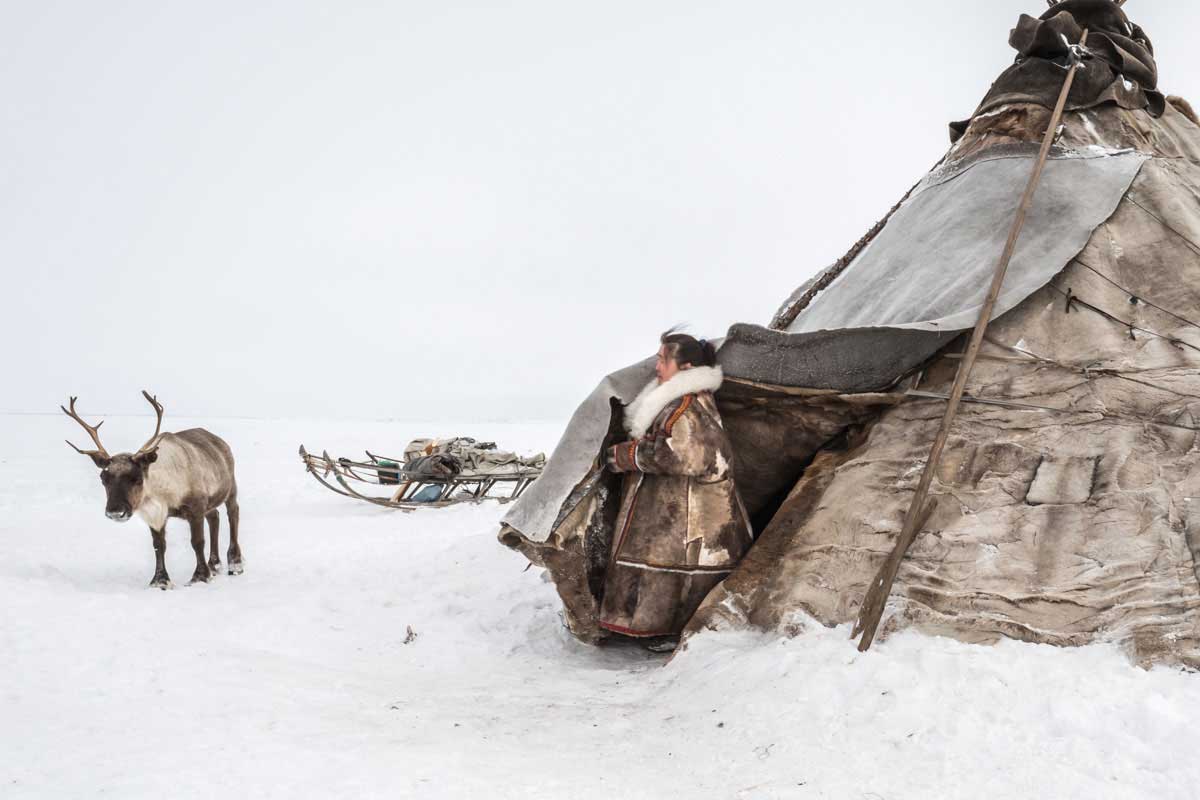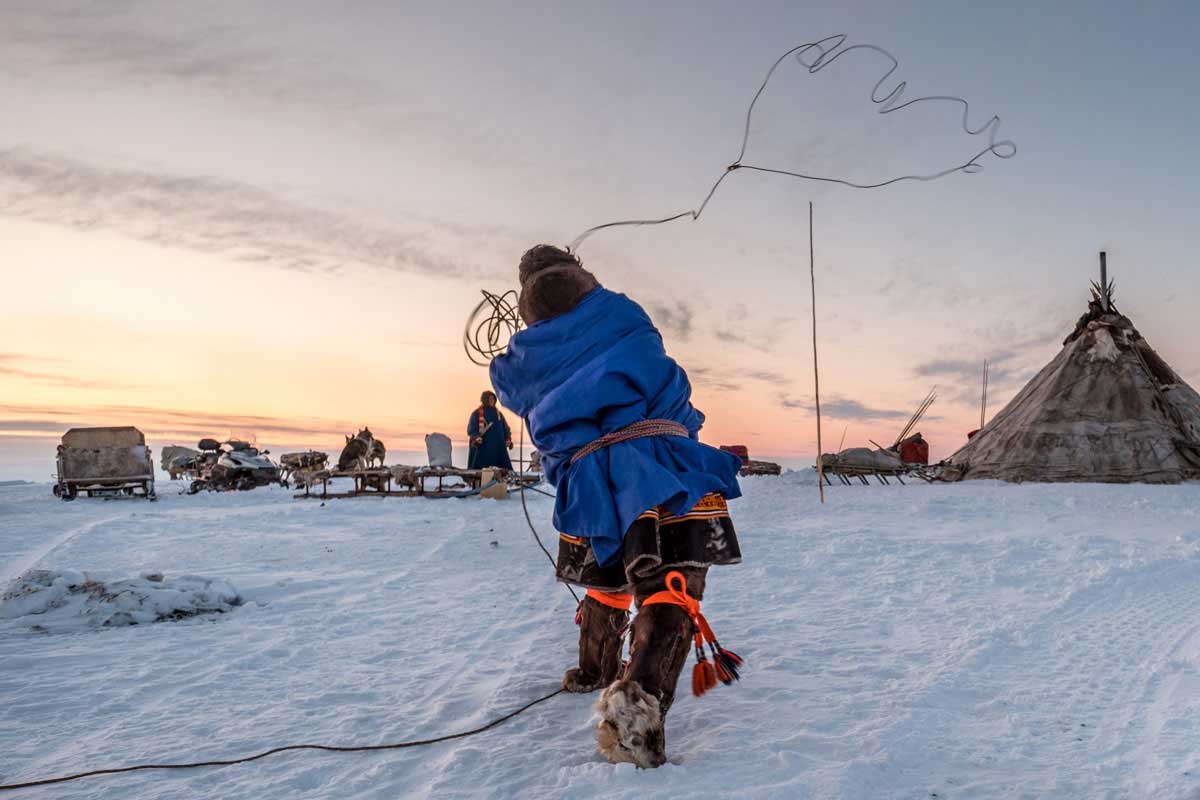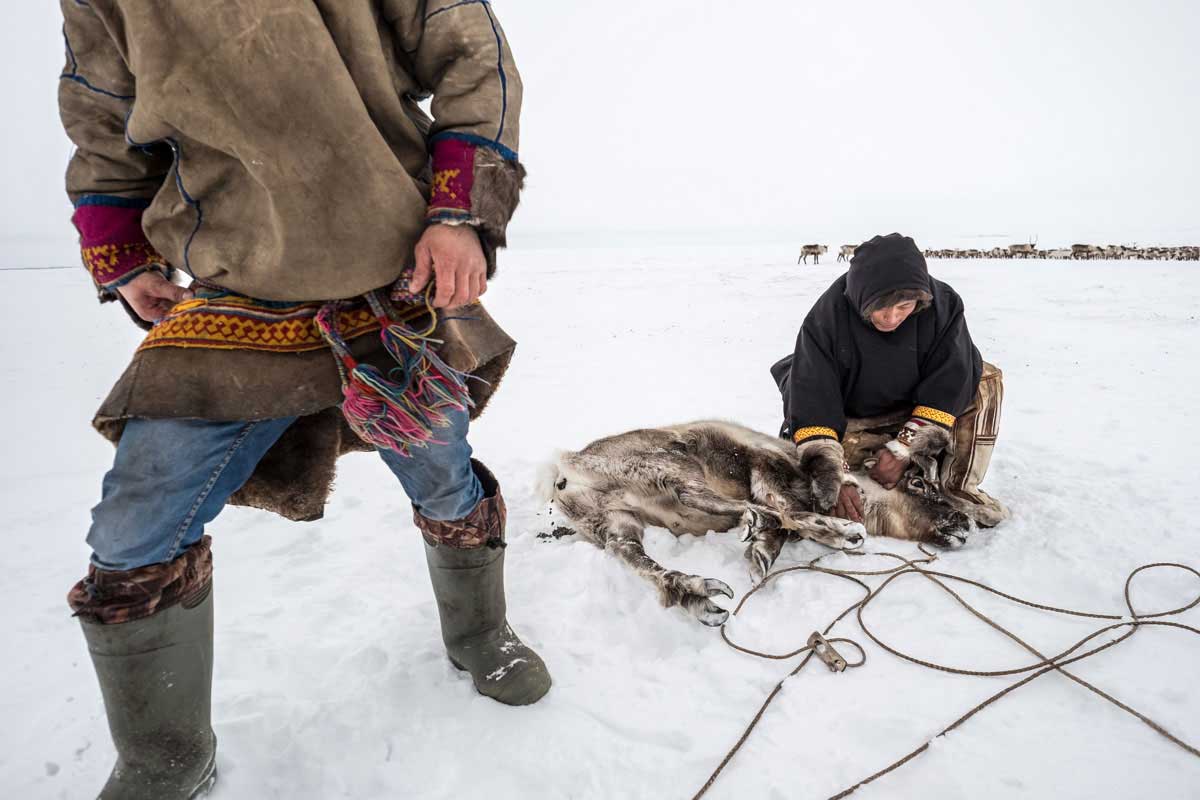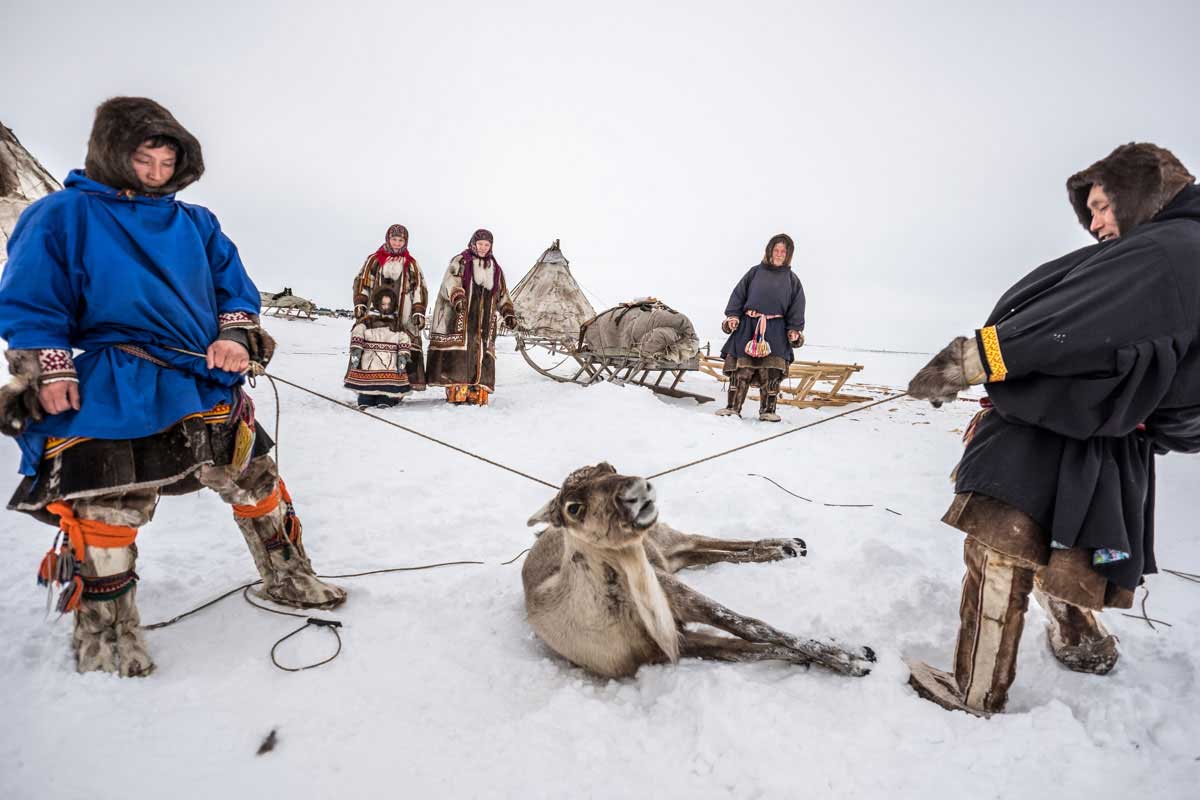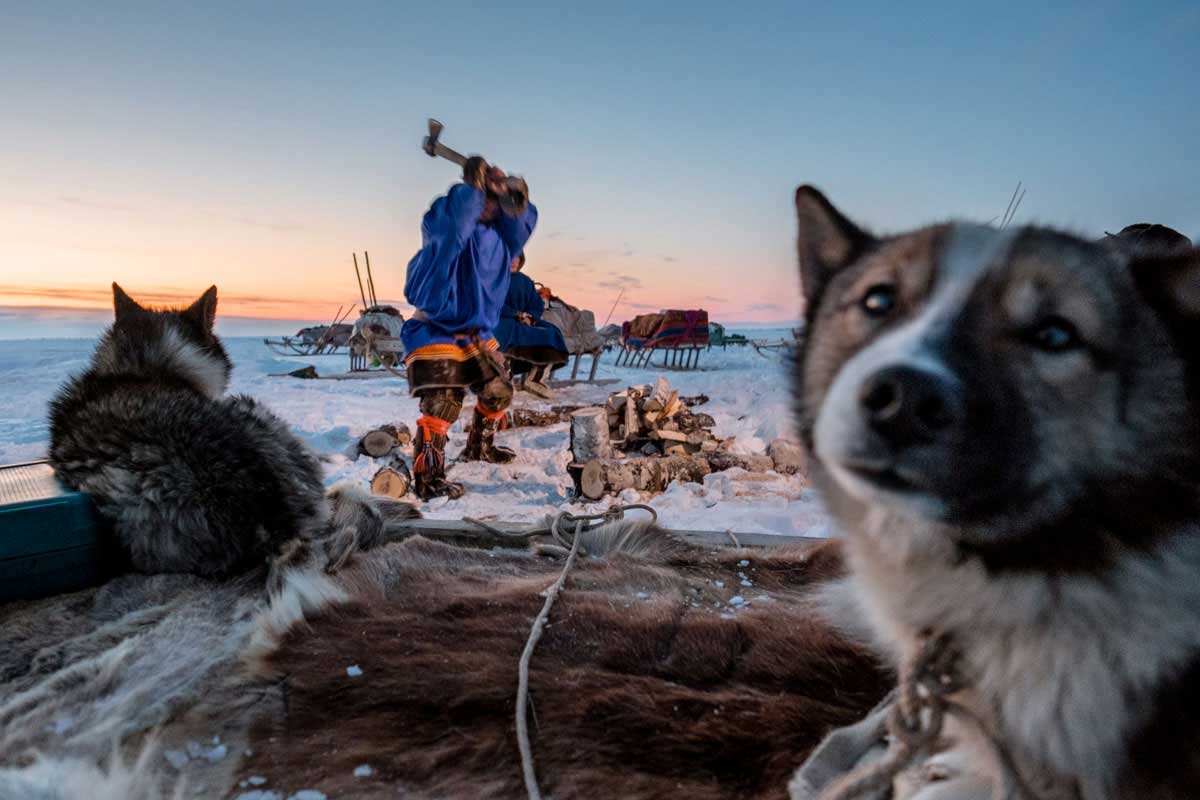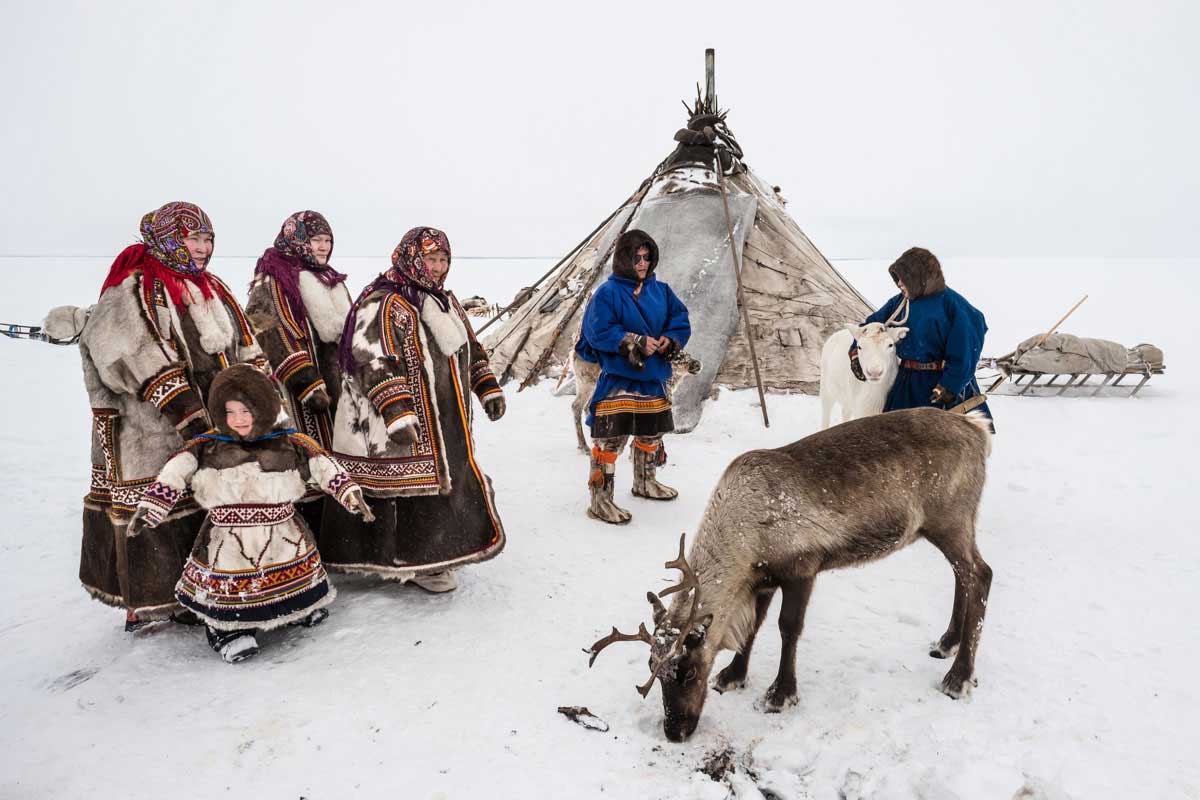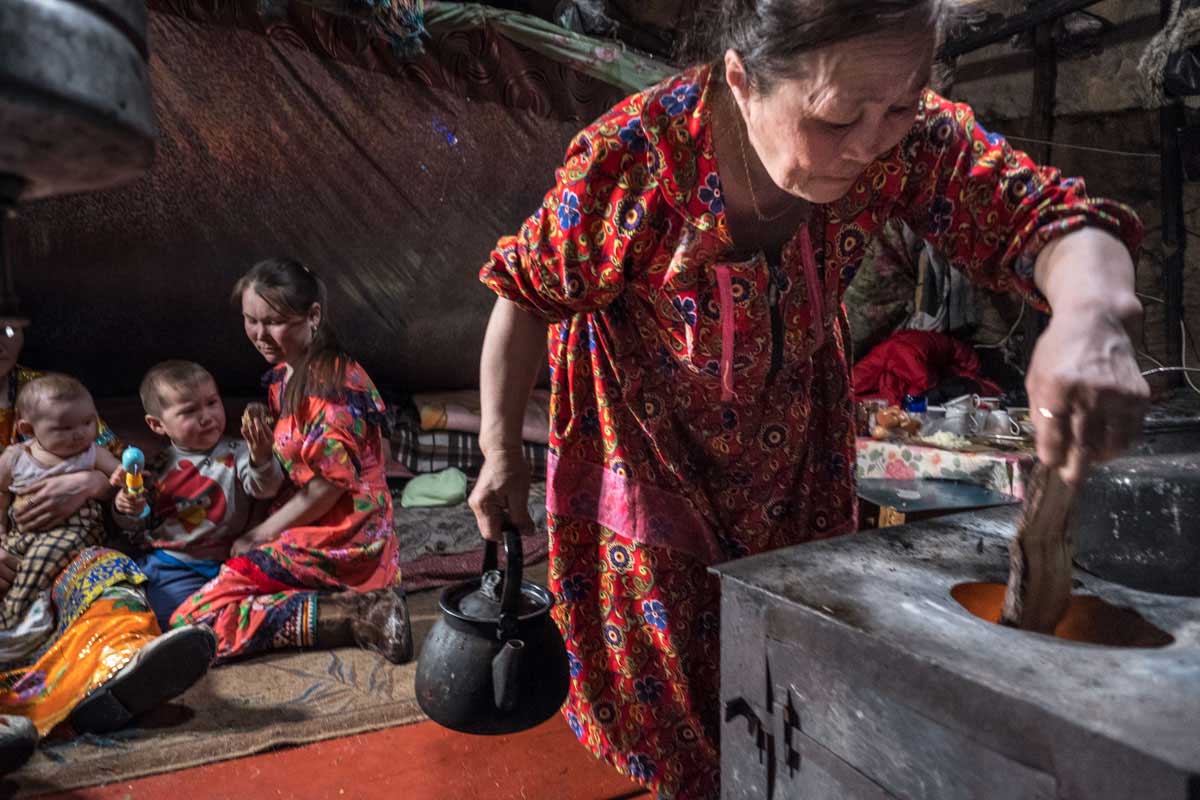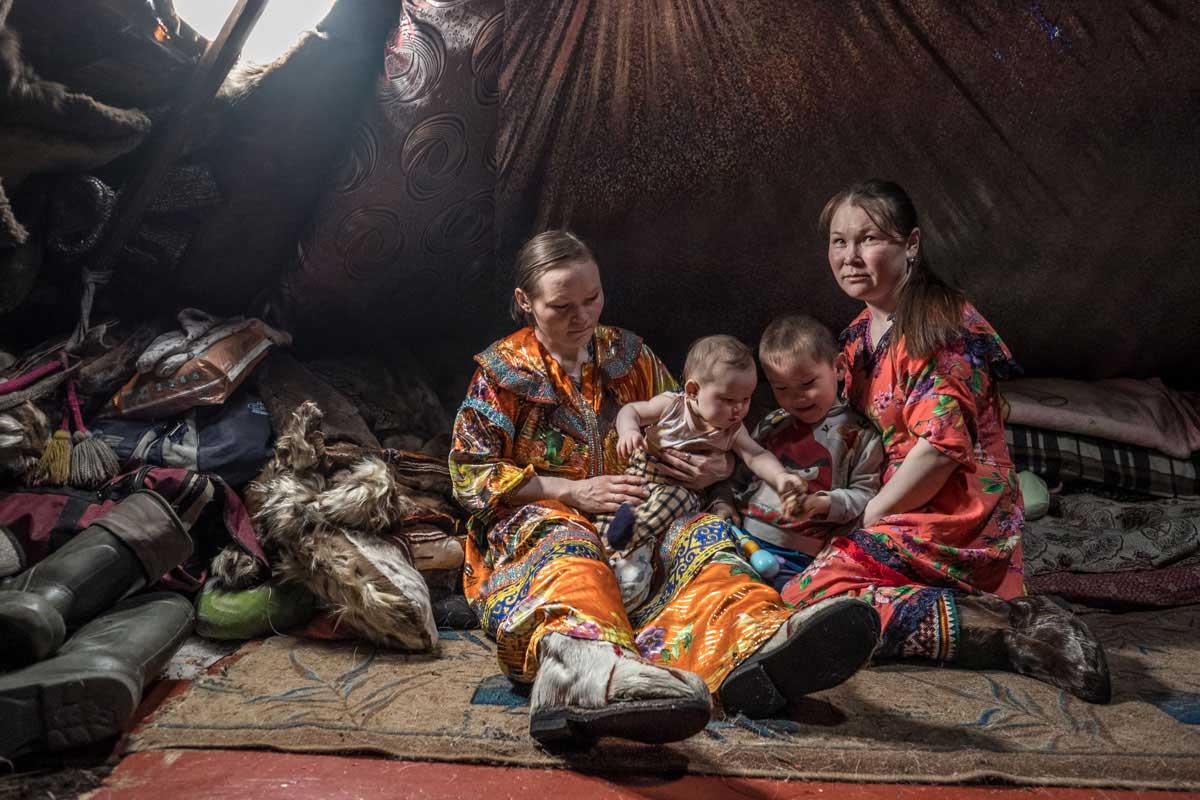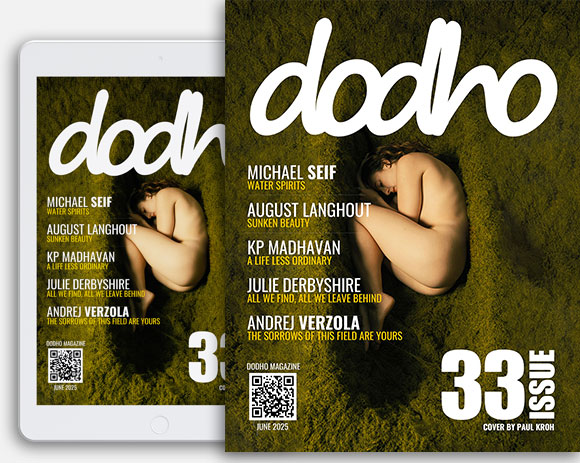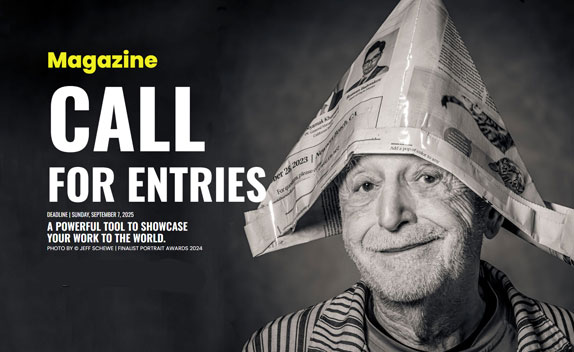The Nenets are an ethnic minority with fewer than 50.000 people dedicated to reindeer breeding. They live in Yamal peninsula, Siberia.
Yamal in the language of the indigenous means «the end of the world» and is a boundless and snow-covered landscape of the tundra, the natural habitat of reindeer living in perfect harmony with the environment and with humans. The need of food drive the reindeer to migrate along the peninsula.
There are two indispensable elements for the indigenous, reindeer food and fire that must never be missed. Getting the wood from small and isolated woods becomes, therefore, one of the primary activities of the day. Despite the hard weather conditions (in winter the temperature can reach -50 ° C), most of the activities are carried out outside the tent, called the “chum”. One of the main attractions is the launch of the lasso, crafted from reindeer tendons. Reindeer meat is the most important part of the Nenets’ diet. It is eaten raw, together with the blood of a freshly slaughtered reindeer, which is rich in vitamins.
The children of these families travel with adults, and they learn their inherited language and culture. They learn by taking an active part in their families’ lives, and helping the adults with the reindeer and the household work. In Russia there is a strong political movement to bring literacy and education to all ‘wild northern tribes’ and to make them members of the Soviet Union. For this purpose, the children of the northern aborigines are taken away from the tundra to study in boarding schools with Russian as the only language of education for all school subjects.
Pavel and Lida (the family I lived with) have ten children but only one of them, Roman, has chosen to continue living a nomadic life. Svetlana and Zinaida (the others two daughters) have decided to live in the city but occasionally they return to the tundra to spend a few days with Pavel, Lida and Roman, the family of origin.
Pavel is 68 years old. He migrate with his family all year round from the south to the north and back, a distance of several hundred kilometers. He loves life in the tundra and knows each of his reindeer. He owns 600 but the State entrusts him with another 800. He says: «For me to care for 600 or 1400 is the same thing, the same workload», and allows him to earn a few more rubles.
The Yamal peninsula contains the biggest gas reserves on the planet. Their exploitation will release millions of tonnes of carbon dioxide into the atmosphere and pose a grave threat to the Nenets reindeer herders and their ancient way of life.
About Sara Bianchi
Born in Italy in 1973, I have always been passionate about travel and photography. I love discovering new places and above all knowing the ways of life of people a bit far from my lifestyles. Every time I try to interact as much as possible with the subjects portrayed in order to obtain photos that, although not technically perfect, are of enormous importance for me as they tell the story of the people who shared with me a few moments of their lives.
